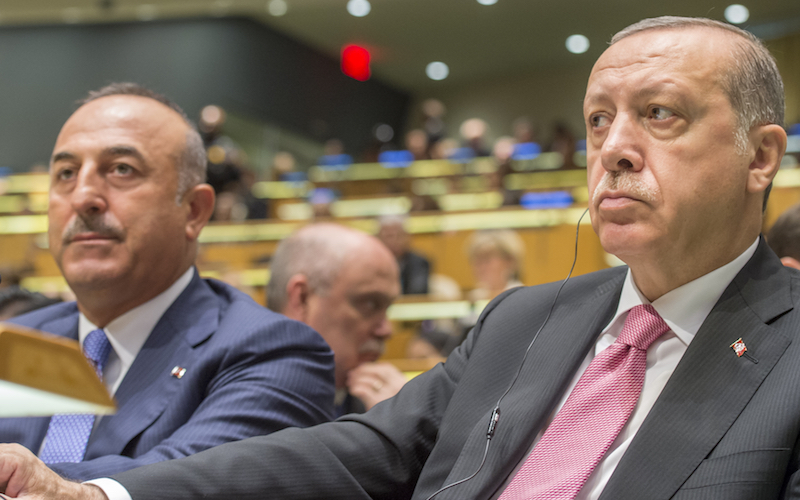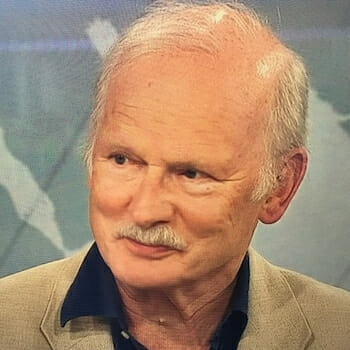
Reza Zarrab: Erdogan’s Ticking Bomb
Reza Zarrab is a ticking bomb under Turkey’s President Recep Tayyip Erdogan and he knows it. Relations between the U.S. and Turkey are already strained by American support for the Kurdish YPG militia in Syria and the arrest warrants for President Erdogan’s security detail since his visit to Washington in May. In addition, the U.S. has refused to hand over Turkish imam Fethullah Gülen, who is accused of masterminding the abortive coup in Turkey in July last year. However, this case of USA vs. Zarrab which is planned to be heard next month, could be the breaking point.
On December 17, 2013, in what Turkish columnist Mustafa Akyol called “the greatest political scandal in the history of the Turkish Republic,” Istanbul police launched three anti-corruption operations and detained 52 people. These included the sons of three government ministers of the economy, the interior and the environment. The center of the first operation was an Iranian-Turkish businessman, Reza Zarrab, who was accused of bribing two of the ministers plus the minister for EU affairs to the tune of $66 million.
When the police raided the home of the general manager of Halkbank, a state-owned bank, they found $4.5 million dollars in cash stuffed in shoe boxes. In the home of the interior minister’s son they found safes, a money-counting machine and almost $1.5 million in cash, as well as, euros and Turkish lira. According to the general manager the cash was held in safekeeping for charity and the interior minister explained it was the proceeds of a house sale.
The two other operations involved illegal construction permits, the minister of environment and urbanization and a municipality in Istanbul. The minister claimed he had acted with the approval of (then) Prime Minister Erdogan, a statement he later retracted. The government reacted immediately. Three ministers resigned, a fourth was replaced, and a second operation planned for December 25, which was believed to have included Erdogan’s son Bilal and leading construction companies, was blocked.
Erdogan claimed the anti-corruption operations were “a plot” against the government and “a judicial coup” orchestrated by the Gülen movement. The public prosecutors and Istanbul’s police chief were removed and legal proceedings were instigated against them. Charges were dropped against the accused, the money seized was returned with interest, and a parliamentary commission, where the governing AK (Justice and Development) party held a majority, voted against the trial of the four ministers.
In the course of the following year, as a prelude to the purge that has taken place in Turkey since the attempted coup, some 40,000 police officers and 4,000 judges and prosecutors were either reassigned or removed.
The main focus of the graft probe was Reza Zarrab, who with the connivance of government ministers and officials exported gold to Iran in contravention of U.S. sanctions. After his release he boasted he had exported 200 tons of gold and by earning more than $11 billion had closed 15 percent of Turkey’s current account deficit. Later, in the presence of the deputy prime minister and the new minister of the economy Zarrab was awarded a prize for his export of jewelry.
However, in March last year Zarrab’s activities came to an end when he was arrested in Miami on his way to Disneyland with his wife and daughter. In an indictment signed by attorney Preet Bharara from the Southern District of New York, Zarrab and two associates were charged with the violation of U.S. and international sanctions, bank fraud and money laundering. These felonies carry a maximum sentence of 75 years’ imprisonment and a likely sentencing range of decades.
Three months later a bail application was denied by Judge Richard Berman in view of the flight risk and the strength of the evidence against Zarrab. In November Reza Zarrab’s brother Mohammad was also indicted and in March this year Halkbank’s assistant manager was arrested at JFK airport and added to the list. Earlier this month the former Turkish minister of the economy, Halkbank’s general manager, an assistant deputy manager as well as an associate of Zarrab’s were added in a superseding indictment and arrest warrants were ordered for the four.
The charges arise out of “a multi-year scheme” to transfer Iranian oil proceeds at Halkbank to exchange houses and front companies controlled by Zarrab for them to buy gold for export from Turkey. The gold could then be converted into cash or currency and remitted to Iran. U.S. financial institutions were also deceived into providing services for these transactions.
In March Preet Bharara was fired by President Trump after refusing to quit and Judge Berman has raised concerns about political interference. Last October Turkish Justice Minister Bekir Bozdag met with his U.S. counterpart Loretta Lynch in an attempt to get her to drop the case and Erdogan raised the matter with President Trump in May.
Bozdag, now deputy prime minister, has accused the U.S. judiciary of being a tool for the Gülen movement, which State Department spokesperson Heather Nauert has dismissed as “absurd.”
Erdogan and Trump have agreed to meet again later this week at the U.N. General Assembly in New York, but with Robert Mueller breathing down his neck the U.S. president would be unwise to intervene.

